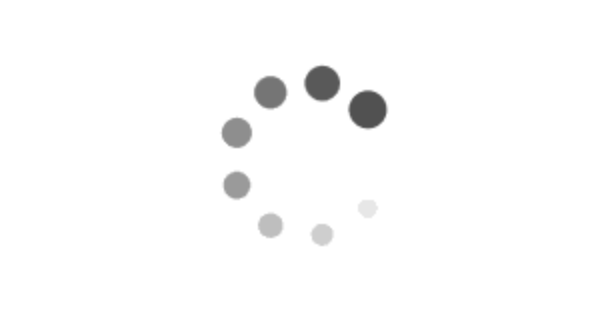
看到一个推友的分享,可以看看。
角度与镜头🎥-midjourney
摄像机角度和镜头类型是电影摄影和摄影的两个不同方面,它们共同创造理想的视觉效果。它们各自在图像或场景的构图和叙事中发挥着独特的作用。
这两个方面有时会令人困惑,所以这里有一个简短的有用描述:
→相机角度是指相机相对于拍摄对象的位置以及相机指向的角度。
→镜头类型描述了主体在图片或场景中的出现方式,主要受相机离主体的远近影响。
了解和理解如何使用这些元素起着至关重要的作用,并对您创作的真实性、和谐性和连贯性产生积极影响。
我用 Midjourney 做了几个测试,我想和你分享。
以下是电影和摄影中最常用的摄像机角度和镜头类型的详细列表,以及我的一些个人评论。
我希望它在您的创造性探索中对您和对我一样有用!
→ 摄像机角度 📐
🎥视线水平:中立的相机角度,大约与拍摄对象的视线水平,创造自然的视角。
Eye-level: A neutral camera angle that is approximately at the subject’s eye level, creating a natural perspective.
🗒️注意:
我测试了 3 种不同的方式,将角度和镜头类型整合到一个简单的提示中,看看哪种方式产生的结果最一致:
– 一个女人站在她家门前的平视镜头
Eye-level shot of a woman standing in front of her house
– 站在她家门前的女人(平视镜头)
A woman (eye-level shot) standing in front of her house
– 一位女士站在她家门前,视线水平拍摄
A woman standing in front of her house, Eye-level shot
根据我的实验,第一种方式显然是三种方式中最一致的。这适用于所有其他类型的摄像机角度和镜头类型。
但是,请随意尝试,编写提示的方法不止一种!
出于某种我不知道的原因,在“女人的眼睛水平拍摄”中使用术语“镜头”而不是“角度”会产生更好的结果。
🎥低角度:从较低位置仰视拍摄对象的相机角度,通常使拍摄对象显得更具优势或力量。
Low-angle: A camera angle that looks up at the subject from a lower position, often making the subject appear more dominant or powerful.

🎥高角度:从较高位置俯视拍摄对象的相机角度,通常会使拍摄对象显得更小或不那么重要。
High-angle: A camera angle that looks down at the subject from a higher position, often making the subject appear smaller or less significant.

🎥荷兰角(或倾斜角或倾斜角):相机故意向一侧倾斜的相机角度,造成迷失方向或不安感。
Dutch angle (or canted angle or tilted angle): A camera angle in which the camera is intentionally tilted to one side, creating a sense of disorientation or unease.
🗒️注意:
我尝试了几种方法来获得“荷兰式角度”的结论性结果,但我没有成功(我尝试了三个不同的术语,将它们放在提示的不同部分等)。
🎥头顶:从上方直视拍摄对象的摄像机角度,提供独特的视角和背景。相机通常位于距离拍摄对象相对较近的位置,可以清楚地看到下方的动作或物体。
Overhead: A camera angle that looks directly down on the subject from above, providing a unique perspective and context. The camera is usually positioned at a relatively close distance to the subject, providing a clear view of the action or objects below.
🎥鸟瞰:该术语通常表示比俯拍更高的有利位置,就好像观看者是从天空或很高的高度俯视一样。它提供了更广阔的视角,可以捕捉整个场景或景观,提供一种规模感和背景感。
Bird’s-eye view: This term generally implies a higher vantage point than an overhead shot, as if the viewer were looking down from the sky or a very high altitude. It provides a wider perspective and can capture an entire scene or landscape, offering a sense of scale and context.
🗒️注意:
虽然俯视图和鸟瞰图通常可以互换使用,但主要区别在于拍摄照片的高度或距离,鸟瞰图通常比俯视图更高或更远。
🎥无人机视角:无人机视角拍摄是使用无人机的航拍视角。
Drone view: A drone view shot is an aerial camera angle using a drone.
🗒️注意:
在我的几个结果中,无人机视图提供了比传统鸟瞰图和俯视图更高的视角。
🎥蠕虫视角:从地面仰视拍摄对象的摄像机角度,营造出戏剧性和不同寻常的视角。
Worm’s-eye view: A camera angle that looks up at the subject from ground level, creating a dramatic and unusual perspective.
🗒️注意:
我尝试了几种方法来获得虫眼视图,但没有成功。如果您已经在结果中始终如一地实现了它,您可以与我们分享。
🎥地平面视图:在地平面视图中,相机也放置在或靠近地面,但镜头通常指向正前方或与地面平行,从更中性的角度捕捉主体。
Ground-level view: In a ground-level view, the camera is also placed at or near the ground, but the lens is typically pointed straight ahead or parallel to the ground, capturing the subject from a more neutral perspective.
🗒️注意:
地面视图并不一致,经常会产生稍微奇怪的结果,例如人半埋在地下或身体姿势不正常!
根据我的实验,最好的使用方式是将术语放在尽可能最好的上下文中,例如:
躺在地板上的女人的地面视图
但是,它仍然经常给出不正确的结果。
🎥侧视图:侧视图通常涉及从侧面捕捉对象,这可以通过使用各种相机角度(如眼睛水平、低角度或高角度拍摄)来实现。
Side view: Side-view typically involves capturing a subject from the side, which can be achieved by using various camera angles like eye-level, low-angle, or high-angle shots.
🎥偏心视图:偏心是指一种取景技术,其中主体不位于画面的中心,从而创造出更具活力和视觉趣味性的构图。
Off-center view: Off-center refers to a framing technique where the subject is not positioned in the center of the frame, creating a more dynamic and visually interesting composition.
🗒️注意:
虽然侧视和偏心在电影中可能未被具体归类为摄像机角度,但它们确实指的是某些摄像机定位技术。
这两个术语都可以像角度和击球类型一样使用,效果非常好。
现在让我们看看镜头类型。
→射击类型🎥
🎥Close-up(特写):聚焦于主体面部或特定细节的镜头,强调情绪或重要性。
Close-up (closeup): A shot that focuses on a subject’s face or a specific detail, emphasizing emotion or importance.
🗒️注意:
每种镜头类型都有其缩写,例如特写镜头的 CU。用缩写代替名称并没有真正起作用。
🎥极近特写:将一个小细节或特征(例如眼睛或一件珠宝)紧紧地框起来,突出其重要性的镜头。
Extreme close-up: A shot that tightly frames a small detail or feature, such as an eye or a piece of jewelry, highlighting its significance.
🎥广角镜头:在其环境中显示整个主题的镜头,提供背景和比例感。
Wide shot: A shot that shows the entire subject within its environment, providing context and a sense of scale.
🎥极广角镜头:捕捉大片区域的镜头,常用于定位或布景。
Extreme wide shot: A shot that captures a large area, often used to establish a location or set the scene.
🗒️注意:
对于广角镜头和超广角镜头,如果您使用更大的图像格式(例如 16:9),效果会被放大。
如果您想要不同的图像格式,请在提示末尾使用 –ar 后跟所需的图像格式,如以下示例所示:
一个女人站在她家门前 –ar 16:9
🎥中景:从腰部以上捕捉主体的镜头,常用于对话场景或传达情感。
Medium shot: A shot that captures the subject from the waist up, often used for dialogue scenes or to convey emotion.
🎥Medium-full shot(美式镜头):medium-full shot 大约从膝盖或大腿中部以上构图。
Medium-full shot (American shot): A medium full shot frames the subject from approximately the knees or mid-thighs up.
🗒️注意:
中景和中景并不总能给出一致的结果。有时中景镜头看起来更像是中景镜头,反之亦然。
🎥过肩镜头:越过一个主体的肩膀看向另一个主体的镜头,常用于对话场景,以营造深度感和联系感。
Over-the-shoulder shot: A shot that looks over the shoulder of one subject towards another, commonly used in dialogue scenes to create a sense of depth and connection.
🗒️注意:
如果放置在正确的环境中,过肩镜头效果很好。否则,结果将非常不确定。
这是一个很好的示例,您可以使用简单的提示进行测试:
一个女人和她朋友说话的越肩镜头
电影和摄影中最常用的摄像机角度和镜头类型的简要概述到此结束。
随意自己做几项测试并与我们分享您的结果!
谢谢你!
作者@TheMouseCrypto
本文地址:https://www.163264.com/1929
